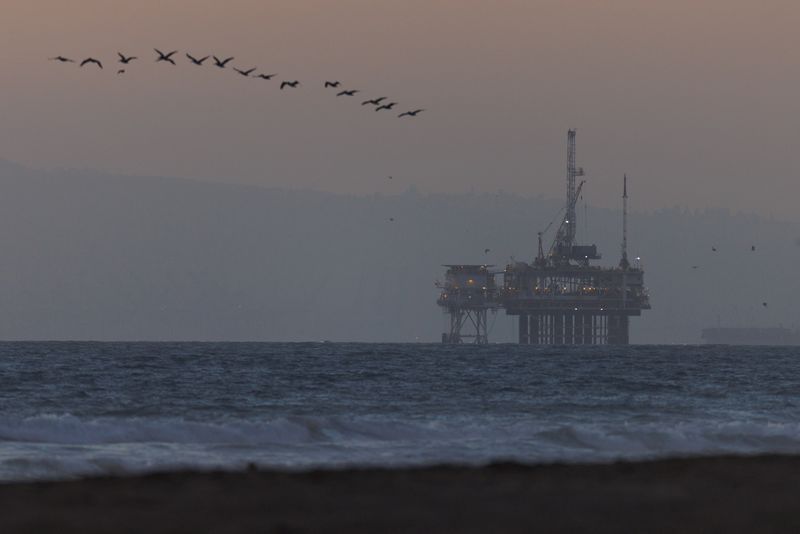By Nate Raymond (NSE:RYMD)
(Reuters) - President Donald Trump in an executive order on Monday revoked a ban imposed by former Democratic President Joe Biden on new offshore oil and gas development along most of the country's coastlines. Trump is certain to face legal challenges over his authority to do so.
WHAT DID BIDEN AND TRUMP DO?
Biden on Jan. 6 used his authority under the 70-year-old Outer Continental Shelf Lands Act to withdraw all federal waters off the East and West coasts, the eastern Gulf of Mexico and portions of the northern Bering Sea in Alaska from oil and gas drilling.
Biden said the move aligned with his efforts to combat climate change, saying "drilling off these coasts could cause irreversible damage to places we hold dear and is unnecessary to meet our nation's energy needs."
Trump had long pledged to expand oil and gas development. He revoked the offshore drilling ban on Monday, one of dozens of actions taken by Biden that Trump repealed on his first day in office.
Trump also revoked an earlier action Biden took in March 2023 that prevented oil and gas drilling in 2.8 million acres in the Arctic Ocean.
CAN TRUMP DO THAT?
Legal experts say the question of whether a president can revoke a predecessor's decision to invoke the Outer Continental Shelf Lands Act (OCSLA) and withdraw areas from mineral leasing and drilling remains legally unsettled.
While the law expressly grant presidents the authority to set aside lands, the 1953 measure is silent on whether they are able to revoke prior decisions. The question has only ever been addressed once in court, during Trump's first administration.
WHAT WAS THAT CASE?
Environmental groups sued after Trump, in April 2017, issued an executive order designed to revoke a similar decision by Democratic former President Barack Obama. Obama invoked OCSLA and put the Arctic’s Chukchi Sea, part of the Arctic’s Beaufort Sea off-limits to oil leasing, along with a large swath of Atlantic Ocean off the U.S. East Coast.
In 2019, U.S. District Judge Sharon Gleason in Anchorage ruled Trump's order was unlawful. "Had Congress intended to grant the President revocation authority, it could have done so explicitly, as it had previously done in several (but not all) of its previously enacted upland laws," she wrote.
Trump's administration in defending his order had cited language in the OCSLA stating that a president may "from time to time" withdraw unleased lands, saying this carried with it an authority to revise prior withdrawal decisions.
But Gleason, an Obama appointee, in her ruling said the OSCLA left only Congress with the power to overturn withdrawals of land.
Before the San Francisco-based 9th U.S. Circuit Court of Appeals could rule on the Trump's administration's appeal of her decision, Biden took office and on his first day revoked Trump's order, mooting the case.
WILL TRUMP'S NEW ORDER END UP IN COURT AS WELL?

Trump's executive order to undo Biden's action will likely invite a new legal challenge from environmentalists and potentially settle the question of a president's revocation authority.
But Biden's order itself is already being challenged in court in two separate lawsuits, including one by five Republican state attorney general and two industry trade groups American Petroleum Institute and the Gulf Energy Alliance and another by Republican Texas Attorney General Ken Paxton, alongside oil and natural gas producer W&T Offshore.